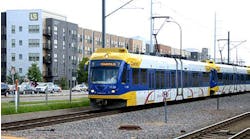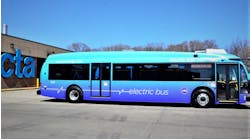The Metropolitan Transportation Authority (MTA) has presented its final proposed 2020 budget and four-year financial plan, which includes no budget-driven service cuts and advances the agency’s Transformation Plan to improve service and deliver reforms for taxpayers and commuters.
The implementation of the Transformation Plan, the agency’s first reorganization in 50 years, is projected to deliver $1.6 billion in savings over the course of the financial plan.
“We are closing the gaps in our budget and moving forward on transformation to give customers the 21st century transit system they deserve,” said MTA Chairman and CEO Patrick J. Foye. “By moving ahead with the historic Transformation Plan, we are in the best position possible to execute the largest Capital Plan in MTA history.”
The 2020 budget and four-year plan also includes $253 million in higher farebox revenue than projected in the July plan due to increased ridership across the system. Additionally, projected fare and toll increases remain below the rate of inflation as the MTA continues to undertake cost-cutting measures to deliver for New Yorkers.
“We’re making great progress to achieve a balanced budget that will provide the essential funding to deliver improved service and reliability for our customers," said Bob Foran, MTA chief financial officer. “Significant challenges remain but the MTA continues to find efficiencies and aggressively cut costs as we embark on an historic transformation.”
The budget proposal comes amidst the MTA and AlixPartners’ historic Transformation Plan to change the way the agency does business by consolidating and centralizing operating support functions to focus on core service delivery. The proposed budget includes significant efficiencies associated with transformation implementation with net savings over the plan.
The four-year plan includes the MTA’s recently issued Transformation Request for Proposals and the creation of the Transformation Management Office to be led by Chief Transformation Officer Anthony McCord. The MTA will also onboard a chief engineering officer, director of research and development, chief people officer and chief technology officer.
In the proposed budget, the MTA assumes a renegotiation of the paratransit contract with the city to provide for equitable cost sharing of the program. Since 1993, New York City Transit (NYCT) has assumed the city’s previous responsibility for providing paratransit service and prior to the NYCT takeover, the city was responsible for 100 percent of the cost. With the substantial investments the MTA has made to improve this service over past 26 years, paratransit ridership has seen a six-fold increase from 25,000 registrants in 1994 to more than 159,000 registrants in 2019.
The cost of this service has gone from $10.9 million in 1994 to $548.5 million in 2019. Under the current agreement, the city pays 33 percent of the deficit limited to no more than a 20 percent increase from the amount the city paid in the prior year. Given these increases, the MTA is proposing an equitable sharing of paratransit costs. In many jurisdictions across New York, local governments cover the full amount of paratransit costs, including Nassau and Suffolk counties, as well as localities across Metro-North’s territory. MTA says an equal share would reduce the cost to NYCT by more than $100 million annually. This arrangement is projected to save $361 million over the course of the four-year plan.
The Financial Plan also reflects the hiring of an additional 500 officers for the MTA Police Department. These officers will patrol across NYCT, Metro-North and the Long Island Rail Road with a focus on ensuring the safety and security of our employees and eight million daily customers. Recently, MTA says there has been a 39 percent increase in worker assaults, as reported by the Transport Workers Union, a more than 50 percent increase in hate crimes and a 10 percent increase in robberies.
The plan also includes a $40 million contribution from the Manhattan District Attorney’s Office for these costs. Additionally, the plan assumes a conservative reduction in the loss of farebox revenue from fare evasion of $200 million over four years, along with reductions in overtime.
Further, as previously disclosed, the AlixPartners report recommends the reduction of up to 2,700 primarily administrative positions. This will primarily focus on attrition and only a reduction of work force as a last resort. It is a critical component of the $1.6 billion in transformation savings.
The MTA says it continues to see significant improvements as a result of the Subway Action Plan with on-time performance reaching 81.5 percent this month. October was the fifth straight month with weekday on-time performance above 80 percent. The November Financial Plan maintains these improvements, which are funded from Phase 1 of Congestion Pricing/For-Hire-Vehicle fees, a $300 million annual ongoing revenue source.
The current budget projections factor in the MTA continuing with its recent practice of keeping fare increases below the rate of inflation, as well as continuing the schedule of regular fare and toll adjustments that was first established in 2009. The schedule of regular fare and toll changes helps customers plan and eases the burden of an increase by ensuring that any increase is predictable and smaller than less regular increases.
The MTA is currently projected to see an operating deficit of $426 million by 2023. The projection is contingent on achieving significant savings and cost cutting outlined in the plan. There are significant risks to implementation; without achieving these critical savings, the MTA’s deficit could grow as high as $1 billion in the out-years, according to the authority.



